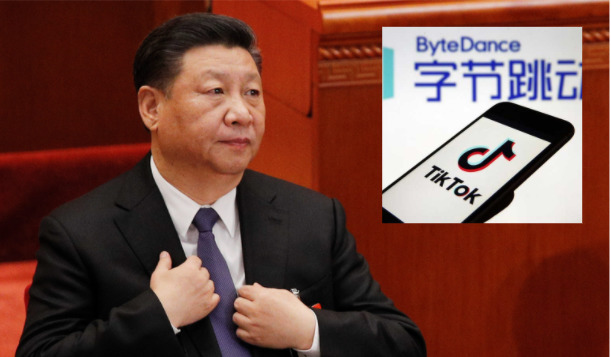China’s private firms are no longer private, as the CCP seems to be overwhelming their ability to make business choices. The latest case in point is TikTok. The parent company of the video-sharing social media platform, ByteDance wanted to sell its US operations to avoid the risk of getting banned by the Trump administration. However, now the CCP is playing spoilsport.
ByteDance has stated that its proposed TikTok deal with Oracle Corp would have to be approved by China. ByteDance has thus indicated that its plans to survive in the US market could get further complicated as the CCP seems reluctant to let the TikTok deal get through.
The CCP itself has many reasons to take full control of the Chinese firms. Firstly, it doesn’t want firms like ByteDance to give away truckloads of data that it has mined including CCP’s dirty data secrets. And secondly, the Communist regime feels that the TikTok deal might kick in a domino effect with Chinese companies selling away their operations in different parts of the world to avoid the risk of getting banned.
Therefore, even though ByteDance could have avoided getting TikTok divested from the US market, the CCP isn’t letting ByteDance strike a deal. The Trump administration is concerned about the likelihood of the tech company passing data of American users to the CCP regime in Beijing. Therefore, US President Donald Trump isn’t going to settle for anything less than an outright sale of TikTok’s US operations.
However, the CCP is forcing ByteDance not to sell away TikTok’s US operations. The Chinese State media, therefore, happily proclaimed that ByteDance’s proposal to the Trump administration does not include an outright sale of TikTok’s operations or technologies.
However, Reuters has reported that ByteDance refused to comment when asked about this. Clearly, the CCP-controlled Chinese State media is deciding how ByteDance goes ahead on the TikTok issue.
Meanwhile, the Chinese Foreign Ministry has also said that the US should respect the principles of market competition and fair competition. This is an indirect message that China won’t allow private firms to sell away their operations to the US.
Mark Natkin, Managing Director at Marbridge Consulting said, “ByteDance, as it works to find a solution to keep TikTok’s U.S. business alive, is walking a tightrope between the demands of the U.S. government on the one side and the expectations of both the Chinese government and public on the other.”
Even the proposal that Oracle submitted to the White House stated that Oracle would become a technology partner with ByteDance when it comes to TikTok but Trump doesn’t seem satisfied with any such proposal. Trump has said that he doesn’t favour the idea of a Chinese tech company retaining control of the controversial, video-sharing app.
Trump now seems set to ban the Chinese social media app by Sunday, given ByteDance’s inability to comply with US demands. The way TikTok is getting sacrificed is a lesson from China- CCP General-Secretary Xi Jinping is going to take full control of China’s private businesses.
CCP’s stricter control of private firms is a part of its drive to reduce China’s private companies into virtually State-controlled enterprises. The CCP has been creating party cells in the private sector and even foreign companies are not being allowed to escape the policy of Communist Party cells.
Recently, the Chinese Communist Party regime also issued guidelines for the private sector to increase the Communist outfit’s influence amongst private companies. It is also expanding the role of the United Front- a CCP government department designed to increase CCP’s influence in the private sector.
China’s economy might be dominated by the private sector, but, the CCP is giving its own trappings to all Chinese firms. China’s private companies are, therefore, hardly private, and by sabotaging ByteDance’s TikTok deal, the CCP is setting a precedent that it might follow with all other Chinese companies.
